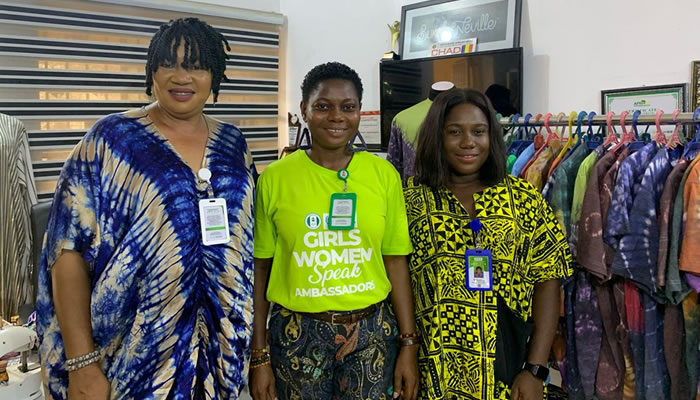Nigeria grapples with a tragically high maternal mortality rate, a stark indicator of the challenges women face in accessing adequate healthcare and achieving socio-economic empowerment. Women entrepreneurs and gender advocates are spearheading initiatives to address this crisis, emphasizing the urgent need for increased investment in maternal healthcare and vocational training programs tailored to women’s needs. They argue that empowering women economically and providing comprehensive healthcare, including reproductive health services, are crucial steps towards reducing maternal mortality and improving the overall well-being of women and their families. These advocates highlight the interconnectedness of health, economic independence, and societal progress, stressing that healthy women are the foundation of thriving families and a developing nation.
A recent sensitization program in Lagos State underscored the importance of educating women about safe motherhood practices, antenatal care, and nutrition. Led by Adebukola Adeogun, a fashion tech entrepreneur and advocate for women’s health, the program brought together pregnant women, nursing mothers, healthcare professionals, and youth to discuss strategies for reducing maternal mortality. Adeogun stressed that maternal health is not solely a women’s issue but a societal concern, requiring collective effort and investment. She emphasized the importance of access to reproductive healthcare, including contraception, safe abortion, and quality maternal services, empowering women to make informed decisions about their bodies and futures. The program, supported by the Nigeria Solidarity Support Fund and the Alimosho/Akowonjo Primary Healthcare Centre, exemplifies the collaborative approach needed to tackle this complex issue.
Adeogun further highlighted the significance of trauma-informed care, mental health support, and improved access to education and vocational skills as critical components of women’s empowerment. She argued that economic independence allows women greater control over their health-related choices and enables them to lead more dignified lives. This empowerment is crucial in breaking the cycle of dependence and vulnerability that often contributes to poor health outcomes. By providing women with the skills and resources necessary to achieve financial stability, they gain the agency to prioritize their well-being and make informed decisions about their healthcare.
Bukola Soaga-Bada, an entrepreneur and Special Adviser on Civic Engagement, echoed Adeogun’s sentiments, urging women to prioritize their health over societal pressures. She challenged the cultural norms that often prioritize childbearing over maternal well-being, emphasizing that the decision to have children should be a personal and health-based choice, not dictated by societal expectations. Soaga-Bada encouraged participants to utilize subsidized government health schemes and seek care from registered traditional birth attendants where necessary, highlighting the available resources and support systems. She emphasized the preventable nature of maternal mortality in Nigeria, stressing that with the right information and access to facilities, the current alarming statistics can be reversed.
Soaga-Bada also underscored the importance of vocational training and soft skills acquisition for women, arguing that financial independence reduces reliance on spouses and empowers women to make more informed life choices. By equipping women with the skills and knowledge to secure meaningful employment, they gain greater control over their lives and can break free from the cycle of economic dependence that often hinders their ability to prioritize their health. This economic empowerment is not only beneficial for individual women but also contributes to the overall well-being of their families and communities.
Jessica Ijeh, a media personality and advocate for women’s rights, addressed the cultural and traditional practices that often impede women’s health decisions. She highlighted the stigma associated with adoption or childlessness, which often pressures women to bear children even when their health is at risk. Ijeh encouraged women to prioritize their hygiene and general health and to enroll in affordable health insurance schemes. She emphasized the importance of mental health, self-care, and personal safety as integral aspects of overall well-being, stressing that these are fundamental rights, not luxuries. Ijeh’s advocacy work, which includes creative projects and live awareness campaigns, further amplifies the message of women’s empowerment and the importance of prioritizing their health and well-being. The collective voices of these women entrepreneurs and advocates provide a powerful call to action, urging for greater investment in maternal healthcare and female empowerment to combat Nigeria’s high maternal mortality rate and improve the lives of women across the nation.














